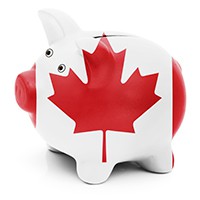Evelyn Jacks: Take Only What is Necessary – Lessons from Ancient Tax Law

With all the political shenanigans of late (both federal and local), the respect – or lack thereof – of the taxpayers’ dollars emerges on front page news daily. If this is particularly irksome to you, you might be interested in a little history of taxation in Canada.
It has been customary for tax policy to be developed to promote economic and social goals as well as to collect taxes and administer the tax system. Many of those goals had noble beginnings.
When Canada was founded, we needed to attract investors and immigrants to grow our economy, not unlike today: post-financial crisis and with an aging demographic which affects productivity and the size of our tax base. Budget speeches from Confederation until 1917 were focused on attracting immigrants by maintaining low taxes.
Canada’s early political leaders decided that attracting new taxpayers could be best achieved through the maintenance of low taxes vis-à-vis the Americans. For decades after confederation, our nation valued – and in fact advertised – our low tax advantage over our neighbours to the South. A recent excerpt from new book by Mark Milke called Tax Me I’m Canadian! A taxpayer’s guide to your money – and how politicians spend it, published by Thomas & Black 2013, traces this tax competition well.
Since then, Canada has been, in fact, significantly influenced by U.S. taxation policies. Over time, the United States began taxing more aggressively than Canada did in the early twentieth century. It was the first to establish a central bank, an income tax and a capital tax, as well as setting the precedents of gasoline, property, and corporate tax. This journey is well described by Chris Edwards, director of tax policy studies at the Cato Institute and editor of www.DownsizingGovernment.org, in his article "We Can Cut Government: Canada Did". What does all of this have to do with current political misbehaviours? Just this: in the U.S., 71 percent of total government spending is federal and 29 percent is state-local. The opposite is true in Canada, where 38 percent is federal and 62 percent is provincial and/or local.[1]
As Chris Edwards, notes: “. . .unlike U.S. states, Canadian provinces can freely borrow and spend without having to balance their budgets each year. During the 1990s many provinces trimmed their budgets and enacted reforms such as cutting welfare. Spending as a share of GDP fell. But over the past decade spending has risen again. Ontario, for example, has a spendthrift premier who has driven the provincial debt up to 37 percent of provincial GDP.” Accountability by all levels of governments, therefore, is very important.
Wilfred Laurier, Prime Minister from 1896 to 1911, was a strong advocate of spending restraint, low taxes, free trade, and civil liberties. He saw Canada as a decentralized federation that supported individual liberty. Even before Laurier, Sir Richard Cartwright’s 1878 budget speech noted:
“All taxation is a loss per se. It is the sacred duty of the government to take only from the people what is necessary to the proper discharge of the public service; and that taxation in any other mode, is simply in one shape or another, legalized robbery.”
It’s Your Money. Your Life. Taxpayers need to take charge of their after-tax affairs to control future wealth and build economic clout. The privilege to vote prudently for responsible stewards of tax dollars, is an important component of that success.
Evelyn Jacks is president of Knowledge Bureau and author of 50+ books on tax and personal wealth management. Her newest book Jacks on Tax: 2014 Edition will be available in December. She is also the founder and director of the Distinguished Advisor Conference (DAC). The theme of the 2014 three day think tank in Horseshoe Bay, Texas Nov 9-12 will be “Think BIG: Find the Sweet Spots in Wealth Management” Follow Evelyn on Twitter at @EvelynJacks.